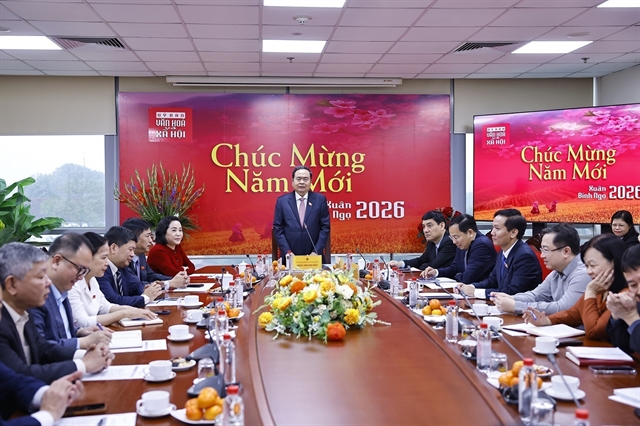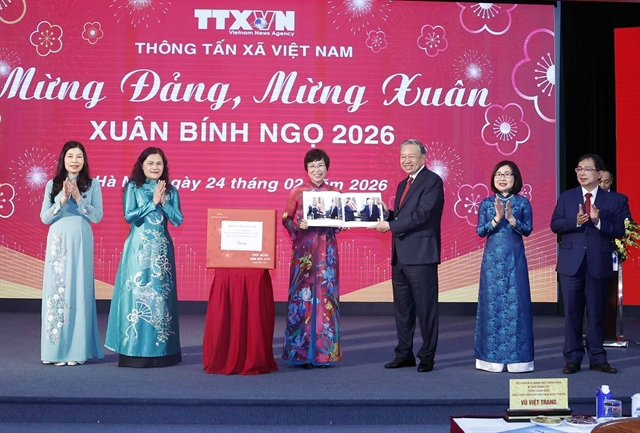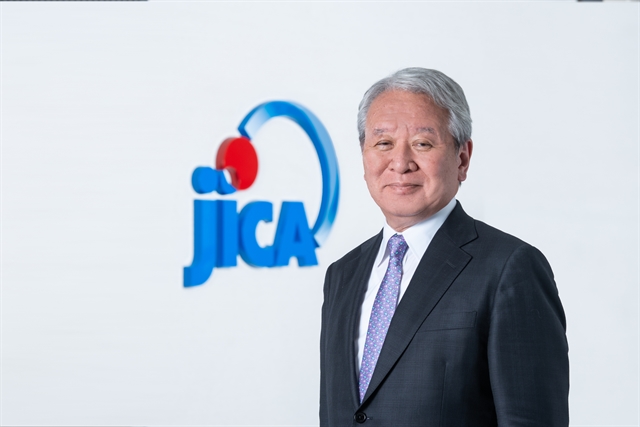 Opinion
Opinion
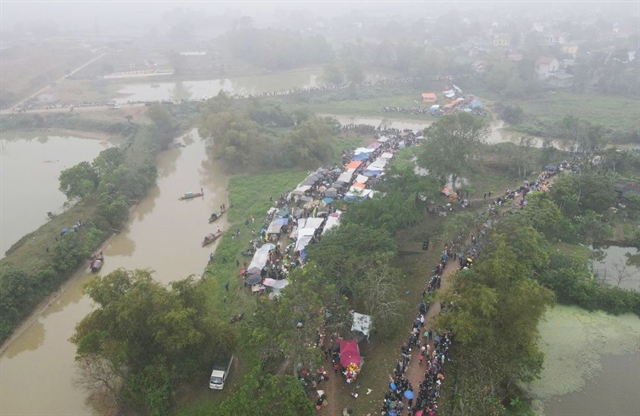
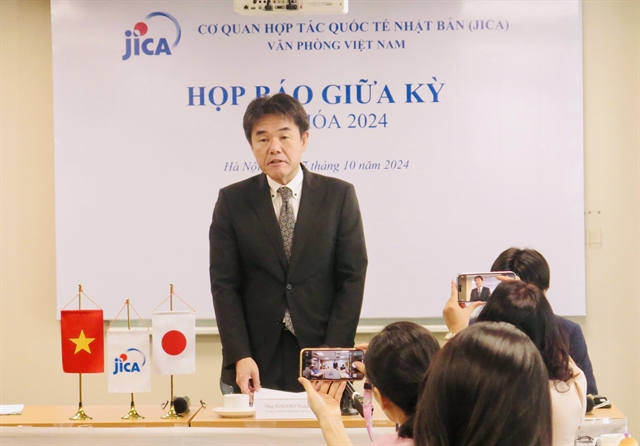 |
| Sugano Yuichi, Chief Representative of the Japan International Cooperation Agency (JICA) Việt Nam Office at a press conference held in Hà Nội on Thursday.—VNS Photo Nguyễn Hằng |
HÀ NỘI — Japan signed loan agreements with Việt Nam totalling JPY102.2 billion (approximately US$678 million) during the Japanese financial year from April last year to March this year, marking the highest amount in six years since 2017.
The amount excludes 'Investment Financing for the Private Sector'.
During that time, technical cooperation with Việt Nam reached JPY5.2 billion (approximately $35 million), making it the largest in the world for the same financial year.
Grant aid for Việt Nam amounted to JPY1.1 billion (approximately $7.5 million) in committed funds.
Chief Representative of the Japan International Cooperation Agency (JICA) Việt Nam Office, Sugano Yuichi, revealed the numbers at a press conference held in Hà Nội on Thursday morning.
The conference aims to summarise the results of Japan's ODA projects in the first half of the fiscal year and plans for the second half of the fiscal year.
“The programmes and projects have provided timely support for Việt Nam’s economic recovery following the COVID-19 pandemic, contributing to both economic infrastructure and human resource development, laying the groundwork for medium- and long-term economic growth,” he said.
Japanese citizens and businesses continued to express significant interest in Việt Nam, a country that had consistently maintained stable and sustainable growth.
Moreover, Việt Nam was at the forefront of JICA’s cooperative efforts, with 45 Japanese overseas cooperation volunteers dispatched, 36 business investment projects from small and medium-sized Japanese enterprises focused on Sustainable Development Goals (SDGs) and 24 grassroots technical cooperation projects (Partnership Development Programme).
“Additionally, Việt Nam ranks second globally with nine projects under JICA’s Investment Financing for the Private Sector programme,” he said.
Three key pillars
Also at the event, Sugano also pointed out some JICA's outstanding projects and plans, focusing on three key pillars.
First, under the pillar of 'high-quality growth' the Bình Hưng Wastewater Treatment Plant in HCM City, which used loan funding, held its inauguration ceremony in August.
At the time of its opening, it was the largest wastewater treatment plant in Việt Nam, expected to significantly improve water pollution - a pressing issue affecting the local populace, he said.
Furthermore, JICA was also constructing Yên Xá Wastewater Treatment Plant – the largest wastewater treatment plant in Hà Nội, which was anticipated to be completed soon.
In addition, the highly anticipated Metro Line 1 project, connecting Bến Thành and Suối Tiên Area in HCM City had begun trial operations and the city was making swift preparations to put the urban railway line into commercial operation.
“JICA hopes that the Metro Line 1 will become an important means of transportation for residents, contributing to carbon emissions reduction by alleviating traffic congestion,” he said.
Second, in the pillar addressing 'vulnerable groups' JICA had coordinated with a senior expert in disaster risk management, dispatched to the Ministry of Agriculture and Rural Development, to assist with the response to Typhoon Yagi that struck the northern region in September, causing significant damage to lives and property.
Eight days after the typhoon made landfall, at the request of the Vietnamese Government, JICA promptly provided emergency relief supplies, including water purifiers and tarpaulins, sufficient for 2,000 households in the northern mountainous province of Yên Bái, one of the hardest-hit areas.
Additionally, under the technical cooperation project, aimed at enhancing capacity for landslide and flash flood risk reduction in the northern region, the Sabo dam designed to mitigate landslide risk had been under construction since September in the northern mountainous province of Sơn La.
Also in Sơn La Province, JICA was developing a plan to mitigate flash flood and landslide risks and considering the implementation of similar plans in northern areas, severely affected by the recent super typhoon, aiming for the goal of 'Building Back Better' to ensure that economic growth was not hampered by natural disasters.
In term of agriculture, the inauguration of the North Nghệ An Irrigation System Restoration and Upgrading Project, financed through loans, took place in March. Expanding irrigation areas would improve the livelihoods of rural residents.
Furthermore, through technical cooperation aimed at strengthening the value chain of safe crops, JICA was responding flexibly to real needs, including emergency support for farmers affected by the recent typhoon, enabling them to resume agricultural production promptly.
In the field of health and healthcare, JICA was preparing to implement a new technical cooperation project to enhance viral hepatitis prevention, a common infectious disease in Việt Nam.
Under the grant aid project, JICA signed an agreement in May and was currently implementing a project to upgrade medical equipment at the Việt Nam National Cancer Hospital, contributing to the increasing demand for cancer diagnosis and treatment in the country.
The final pillar was 'Human Resource Development'.
The year of 2024 marked the tenth anniversary of the Việt Nam-Japan University. As of September 6, there were currently 1,110 students enrolled, including those in postgraduate programmes.
New demands
JICA was seeing new demands from Việt Nam, such as developing human resources in the semiconductor sector, disaster prevention, solutions to achieve carbon neutrality by 2050, addressing the challenges of an ageing population, as well as supporting recovery from the recent devastating weather.
“All aim at fostering stable economic development and protecting citizens amid shifting international and domestic circumstances,” he said.
"To meet the demands, we recognised the importance of flexibly expanding and adapting the cooperation scope, leveraging existing collaborations and networks with Việt Nam.
"Furthermore, it was essential for aid agencies and the Vietnamese Government to collaborate flexibly to improve the environment for ODA projects.
“We will make significant efforts to address these issues while meeting the demands in new areas,” he said. — VNS

